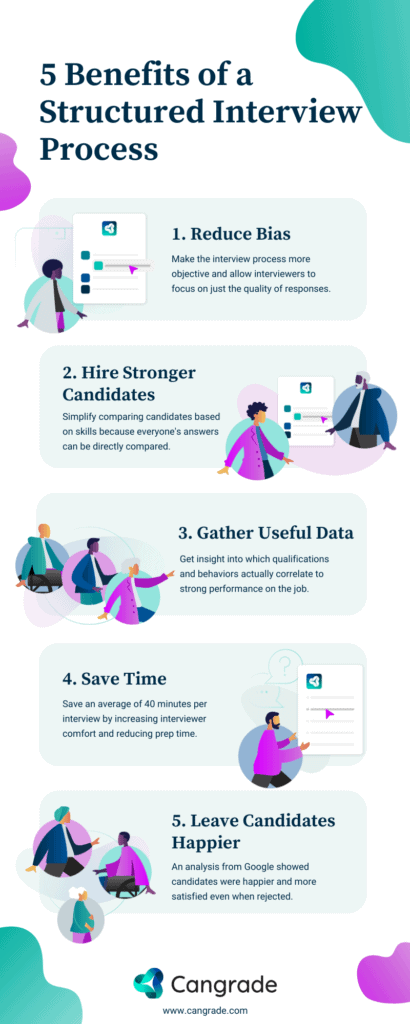What Is A Structured Interview? What Are the Benefits?
Most job interviews follow the same path: the interviewer sits down with the interviewee and engages in some small talk to break the ice, then asks a series of questions about their experience, goals, and qualifications. When a connection emerges, like going to the same school or working in the same company previously, both sides feel a warm glow, and the candidate feels more confident about going on to the next stage.
But those unstructured interviews are not helpful to the hiring process, even though they’re typical. They add in bias, as interviewers ask different questions of every candidate and may base decisions on people they have the most in common with. Plus, those moments of connection don’t mean that the candidate is actually well-suited for the job.
Structured interviews are a much better, bias-free way to go. But what is a structured interview and why is it worth it?
What is a structured interview?
A structured interview is an interview format where every candidate is asked the same questions, in the same order, so you have a more objective view of everyone’s qualifications and aptitudes. It allows you to compare every candidate’s responses more accurately against their competition to end up with the person who is best for the role, not the person who is most likable in their interview.
The benefits of a structured interview
Structured interviews have many benefits, both to employers and candidates, so adding them is a great way to improve the efficiency of your hiring process and your candidate experience. Download this infographic to save everything you need to know about why structured interviews are the better choice for organizations committed to eliminating bias from their hiring processes and creating a more diverse company.

Discover how Cangrade can help you easily and efficiently implement a structured interview process. Request a demo today.